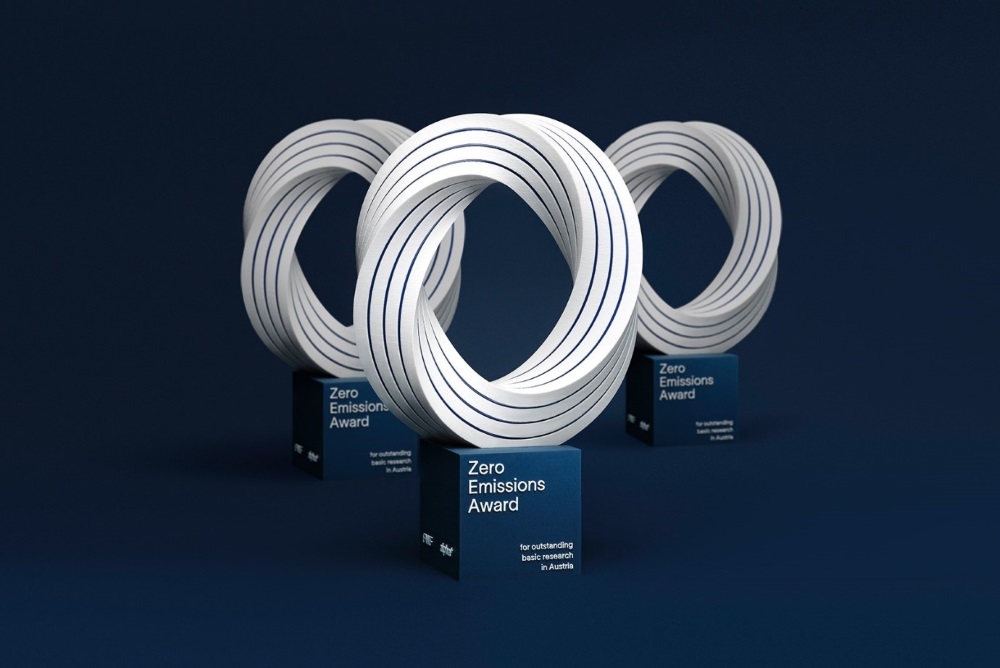June 16, 2025
Zero Emissions Award by FWF for ISTA Researcher
Rajesh B. Jethwa wins award for climate-relevant basic research worth €375,000
Austria’s highest privately endowed funding for climate-relevant basic research, the Zero Emissions Award from the alpha+ Foundation of the Austrian Science Fund (FWF) announces this year’s three winners. Among them is Postdoc Rajesh B. Jethwa, who was awarded €375,000 for his research into sustainable battery materials in the Freunberger Group at the Institute of Science and Technology (ISTA). The award will be handed over at the Austrian Science Awards on June 25.

With the annual Zero Emissions Awards, the alpha+ Foundation funds outstanding basic research projects that will help achieve the goal of a climate-neutral future—projects that are not only scientifically excellent and technologically innovative, but whose findings will also have an ecological impact in the future. This year’s three awards are made possible by a donation from US entrepreneur Patrick S. Dumont to the alpha+ Foundation of the Austrian Science Fund (FWF). Eva Maria Prem of the University of Innsbruck will receive €407,000 to pursue new approaches for generating energy from waste materials. Katalin Barta Weissert from the University of Graz is receiving €378,000 to explore replacing petrochemicals in the pharmaceutical industry with renewable alternatives. And Rajesh B. Jethwa, Postdoc in the Freunberger Group at the Institute of Science and Technology (ISTA), was awarded €375,000 for research into sustainable battery technologies.

Combining organic and metal-based materials for sustainable batteries
Renewable energies such as wind and solar power are not always available when we need them, which is why improved, scalable batteries for energy storage are crucial. But today’s batteries often depend on rare or unethically sourced materials, which makes them unsafe, environmentally harmful, and geopolitically problematic. In his project, ISTA chemist Rajesh B. Jethwa is investigating new battery materials made from sustainably available elements. The advantages of organic materials (adaptable and potentially recyclable) are combined with those of metal-based materials (current industry standards with high stability).
The aim is to develop new types of battery electrodes that can store energy in both metallic and organic components. By analyzing material structures and performance, the aim is to design high-performance, long-lasting, and sustainable batteries that are less dependent on critical raw materials. This could be an important step towards safe and environmentally friendly energy storage solutions.
“Basic research has key role in achieving the goal of a sustainable future”
“Congratulations to the winners on their outstanding research projects, which are now being recognized with a Zero Emissions Award,” said Georg Winckler, Chair of the alpha+ Foundation, at the announcement of the Zero Emissions Awards. “This year’s projects once again show basic research’s key role in achieving the goal of a sustainable future. This research provides today’s foundations for the innovations and solutions of tomorrow.”
“Philanthropy can provide an important stimulus in science and research, where many social achievements begin. The Zero Emissions Award makes a valuable contribution and enables promising research projects whose results will make an impact far beyond the realm of science. Our thanks go to Patrick Dumont, whose commitment has once again made this award possible,” says Ursula Jakubek, Deputy Chair of the alpha+ Foundation and Executive Vice-President of the FWF.
“It is impressive to see the outstanding research being carried out in Austria, especially in a field that is so crucial for the future of our planet. This year, for the second time, the presentation of the Zero Emissions Award highlights how diverse and innovative solutions in the areas of climate, energy, and the environment can be. I wholeheartedly congratulate the award winners, whose projects exemplify truly pioneering approaches in innovation. My thanks go to the Austrian Science Fund, whose support makes this scientific excellence possible in the first place. To me and my family, it is very important to continue supporting science and climate-friendly achievements in Austria,” says Patrick S. Dumont, who is impressed by the research projects.
Looking ahead to a Zero Emissions future
One can already look forward to the Zero Emissions Award 2026: Researchers from universities and non-university research institutions can submit climate-relevant research proposals for the Zero Emissions Award on an ongoing basis.



